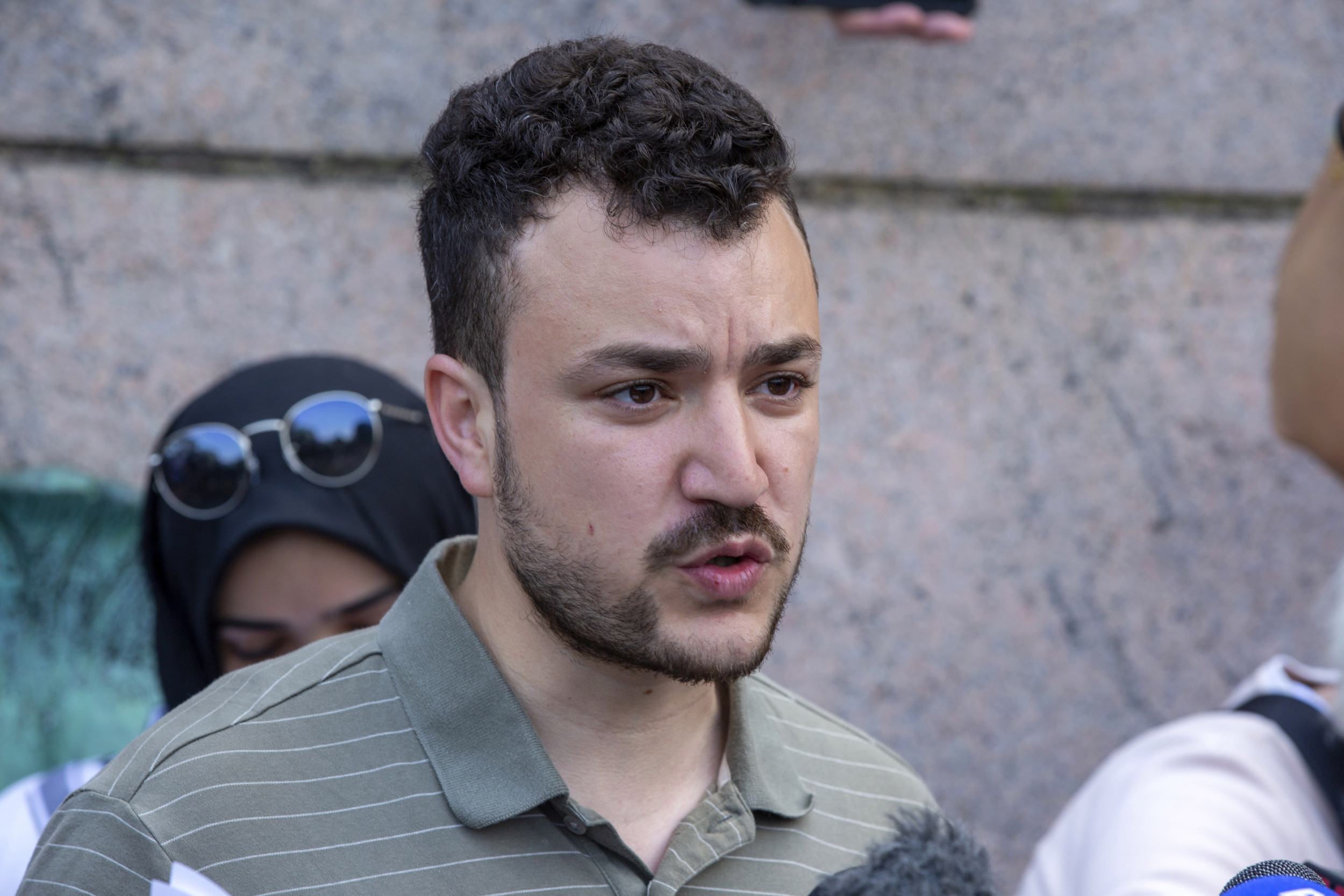What Happened
On June 11, 2025, U.S. District Judge Michael Farbiarz issued a preliminary injunction that barred the Trump administration from deporting Mahmoud Khalil, a Columbia University student and pro-Palestinian activist. Khalil, who is a lawful permanent resident of the United States, had been detained by Immigration and Customs Enforcement (ICE) since March 2025 following his involvement in anti-Israel protests on campus. The ruling came after Khalil filed a habeas corpus petition, arguing that his detention was unconstitutional and violated his First Amendment rights.
Judge Farbiarz’s decision was based on concerns that the government’s actions could infringe upon Khalil’s free speech rights. The judge noted that the government’s justification for Khalil’s detention—citing foreign policy interests—was potentially unconstitutional. The ruling allows for the possibility of an appeal by the government, as it includes a stay that gives officials until Friday morning to respond.
Key Details
- Judge: Michael Farbiarz, U.S. District Judge for New Jersey.
- Subject: Mahmoud Khalil, a 30-year-old Palestinian activist and Columbia University student.
- Legal Basis: Khalil’s habeas corpus petition claimed that his detention violated his constitutional rights, particularly the First Amendment.
- Government’s Argument: The Trump administration, through Secretary of State Marco Rubio, claimed that Khalil’s presence in the U.S. posed a threat to foreign policy interests, specifically regarding antisemitism and its impact on Jewish students.
- Timeline: Khalil was detained in March 2025 and has been held at a facility in Louisiana. The preliminary injunction was granted on June 11, 2025.
Multiple Perspectives
The ruling has sparked a range of reactions. Supporters of Khalil argue that his detention is a violation of free speech rights and a broader attack on pro-Palestinian activism in the U.S. They view the government’s actions as an attempt to silence dissenting voices, particularly those advocating for Palestinian rights. Khalil’s legal team has emphasized the emotional and familial toll of his detention, particularly as he missed the birth of his son while in custody.
Conversely, the Trump administration and its supporters argue that Khalil’s activities are not merely expressions of free speech but actions that could incite hostility and undermine U.S. foreign policy objectives. They contend that the administration has a responsibility to protect Jewish students and maintain a stable diplomatic environment. Rubio’s memo specifically cited Khalil’s alleged participation in antisemitic protests as justification for his deportation.
Context & Background
The case of Mahmoud Khalil is situated within a larger national conversation about immigration, free speech, and the treatment of activists in the U.S. Khalil, who was born in a Palestinian refugee camp in Syria and holds Algerian citizenship through his mother, became a prominent figure in pro-Palestinian protests at Columbia University. His detention is part of a broader trend where the Trump administration has been accused of targeting activists and dissenters, particularly those involved in movements related to Palestine and Israel.
The legal framework for Khalil’s potential deportation is rooted in the Immigration and Nationality Act of 1952, which allows the Secretary of State to deport noncitizens if their presence is deemed to have serious adverse foreign policy consequences. This provision has been controversial, as critics argue it can be misused to suppress free speech and activism.
What We Don’t Know Yet
As of now, it remains unclear whether the government will appeal Judge Farbiarz’s ruling and what the implications of such an appeal might be. Additionally, the long-term impact of this case on immigration policy and the treatment of activists in the U.S. is uncertain. The legal arguments surrounding the intersection of national security, foreign policy, and constitutional rights are complex and may evolve as further hearings and legal challenges unfold.
Furthermore, the emotional and familial implications for Khalil, who has expressed distress over missing significant life events due to his detention, raise questions about the human impact of immigration enforcement policies. The outcome of this case could set important precedents regarding the rights of activists and the limits of government authority in matters of national security and free speech.


